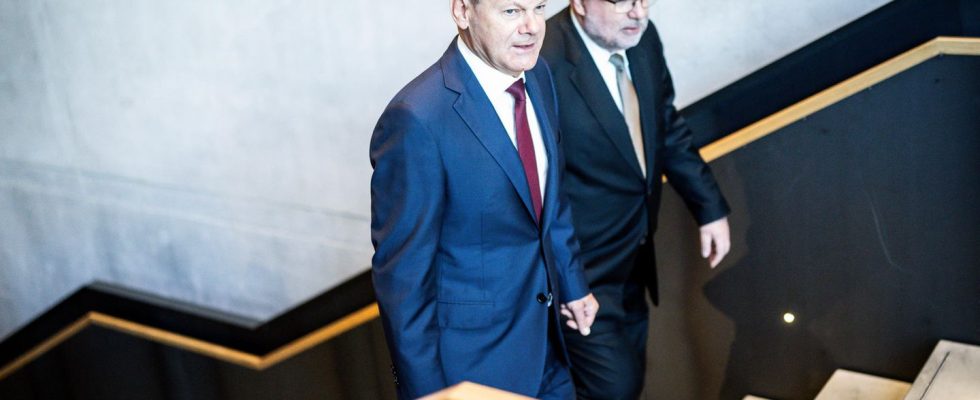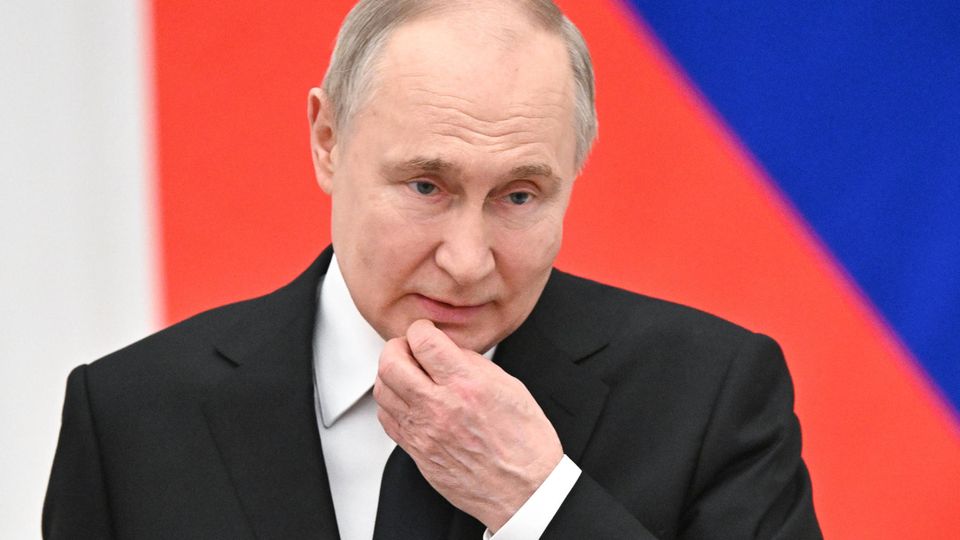column
Fried – view from Berlin
The economy complains about Olaf Scholz – but it has overlooked something important
Here next to each other, but also sometimes against each other: Federal Chancellor Olaf Scholz (l.) and BDI President Siegfried Russwurm
© Michael Kappeler/ / dpa / Picture Alliance
Germany lost two years because of Olaf Scholz, says a prominent businessman. But wait a minute: there was something there, our author remembers.
The tone was rough in the 1998 election campaign. The President of the Federation of German Industries (BDI), Hans-Olaf Henkel, warned against a change from Helmut Kohl to Gerhard Schröder: “I don’t want to see what Germany looks like after 100 days of SPD government color in.” The Social Democratic candidate for chancellor called the business associations “speakers for the government.” And his party leader Oskar Lafontaine insulted Henkel and two other employer presidents as an “anti-social trio.” On election evening, Henkel caused a sensation when he appeared at the SPD party, congratulated Schröder and said: “I’m always with the winners.” The two of them still continued to tear each other apart.
This story came to mind when I read that there was a dispute between Siegfried Russwurm, today’s BDI President, and Olaf Scholz, today’s SPD Chancellor. Russwurm complained in the “Süddeutsche Zeitung” that he felt that Scholz was not taking his concerns about the economy seriously and that he only ever heard the disparaging sentence: “The complaint is the businessman’s song.”
The difficult relationship between BDI bosses and chancellors continues, and by the way it also existed with the CDU chancellor: At the 2019 Industry Day, the then BDI president Dieter Kempf complained that the grand coalition had lost the trust of the economy. Angela Merkel hit back by saying that the important auto industry had lost the trust of politicians with the diesel scandal.
Now another businessman is singing his song again: Russwurm complains that with regard to the business location, the first traffic light years were “two lost years”. I paused for a moment because a question was ringing quietly in the back of my mind: Wasn’t there something in the past two years? And then it occurred to me: right, the war in Ukraine and its consequences in Germany.
Is it really just the traffic lights to blame?
There isn’t much that can be credited with the traffic light government, but many would confirm that immediately after taking office, under difficult conditions, it quickly and quickly prepared the country well against the energy shortage and an even more massive economic downturn. Russwurm himself was still full of praise in the summer of 2022, calling the government’s decisions “extremely helpful” or “very clever” and saying: “I think the type of interaction is good.” Two lost years?
As is well known, one reason why Germany was vulnerable in terms of energy policy was its fixation on Russian gas. Gerhard Schröder and Angela Merkel are politically responsible for this, but they also responded to pressure from business. Energy should be cheap.
To Siegfried Russwurm’s credit, he also subsequently criticized the role of some managers in this energy policy in 2022. “We saved the fire brigade because we considered the risk of fire to be negligible,” he admitted. “Now it’s ablaze.” However, the economy left the solution to the problem that it helped caused to politics. In the meantime, the traffic light is converting the energy supply quickly, although certainly not always smoothly. But two lost years?
Maybe Olaf Scholz, who is known to be a friend of songs in politics (“You’ll Never Walk Alone”), will listen more to the BDI again if the next verse of the merchant lawsuit sounds a little more realistic.



